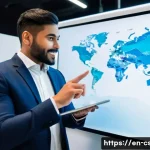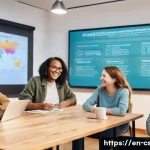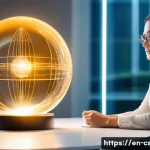Have you ever scrolled through countless online courses, feeling overwhelmed by the sheer volume of information and wondering how to truly master the art of learning independently?
As someone constantly seeking to unlock my own potential and help others do the same, I recently embarked on a fascinating journey: a Self-Directed Learning Coach Certification program.
In an era where adapting quickly and acquiring new skills is paramount, the idea of truly owning your learning path isn’t just a theory—it’s the superpower everyone needs to cultivate.
What genuinely captivated me about this particular program was its deep dive into fostering intrinsic motivation and equipping individuals with the tools to become their own best educators, moving far beyond traditional classroom models.
It wasn’t just about earning a certificate; it was a profound personal and professional transformation, revealing how pivotal a guiding coach can be in navigating today’s complex educational landscape.
From my personal experience, the shift in perspective was immense, illuminating effective strategies for sustained engagement and genuine growth in a way I hadn’t anticipated.
If you’re looking to truly empower learners, or even yourself, to thrive in this new educational frontier, then let’s get into the specifics of this impactful training.
Shifting from Passive Consumption to Active Creation

When I first stumbled upon the idea of becoming a Self-Directed Learning Coach, my initial thought was, “Isn’t everyone already self-directed in their learning to some extent?” Oh, how delightfully naive I was!
What I quickly learned, and what truly transformed my perspective, is that there’s a world of difference between passively consuming information and actively designing your own learning journey.
Before this certification, I often found myself chasing shiny new courses, jumping from one skill to another without a clear map. It was like collecting puzzle pieces but never quite seeing the full picture.
My own experience in the program highlighted how many of us, myself included, often rely on external structures and deadlines to propel our learning. But what happens when those structures disappear?
This program wasn’t just about gaining a credential; it was about internalizing a methodology that allows you to become your own learning architect, and in turn, guide others to do the same.
It’s an empowering shift that moves you from being a passenger to the driver of your intellectual growth. I genuinely feel like I’ve gained a superpower, one that lets me tackle any new challenge with a sense of purpose and a proven system.
The ‘Aha!’ Moment: Discovering My Inner Educator
Honestly, I’ve always considered myself a lifelong learner, but the true “aha!” moment came during the initial modules of the certification. It wasn’t about *what* I was learning, but *how* I was learning, and more importantly, how I could help others optimize their “how.” I realized that for years, I had been an excellent student of traditional systems, but the real magic happens when you empower yourself to custom-build your educational path.
This program gave me the vocabulary and the frameworks to articulate what I instinctively felt: that true learning flourishes when it’s driven by internal curiosity and personal relevance.
It shifted my focus from simply absorbing facts to cultivating a mindset where I could design my own curriculum, set my own benchmarks, and truly own my educational outcomes.
Experiencing this shift firsthand has made me a much more empathetic and effective coach because I’ve walked that path of transformation myself. It’s a liberation from the “one-size-fits-all” approach to education, which, let’s be honest, rarely fits anyone perfectly.
Beyond the Textbook: Crafting Personal Learning Journeys
One of the most profound takeaways for me was the emphasis on moving beyond conventional textbooks and prescribed curricula. While those have their place, real self-directed learning encourages a broader, more dynamic approach.
I’ve always been a fan of diverse resources – articles, podcasts, documentaries, real-world projects – but the certification helped me understand how to strategically integrate these into a cohesive, personalized learning journey.
It’s about seeing every experience as a potential learning opportunity and knowing how to extract maximum value from it. I felt a real sense of creative freedom in designing my own mini-projects and experiments within the program, which not only deepened my understanding but also ignited a passion for helping others discover this same freedom.
It’s not just about what you know, but how effectively you can acquire new knowledge and skills, tailoring the process to your unique needs and goals.
This personal touch is what makes learning stick and truly translates into tangible growth, not just for me, but for anyone I now coach.
The Core Pillars of Self-Directed Mastery
Delving into the Self-Directed Learning Coach Certification program was like opening a treasure chest filled with insights into human motivation and effective learning strategies.
What struck me most profoundly were the fundamental principles that underpin true self-directed mastery. It’s not simply about having the desire to learn, but about understanding the internal mechanisms that sustain that desire and translate it into consistent action.
I’ve always believed that passion is key, but this program meticulously breaks down *how* to cultivate and maintain that passion even when faced with challenges or plateaus.
It’s about building a robust internal compass that constantly points you toward growth. My previous attempts at self-improvement sometimes fizzled out, and now I realize it was often due to a lack of understanding of these core pillars.
The program provided a structured way to dissect my own learning habits and build new, more effective ones. This deep dive into the psychological and practical aspects of learning has been invaluable, not just for my own development, but for effectively guiding others who are feeling stuck or unmotivated in their educational pursuits.
It’s about creating a sustainable engine for intellectual curiosity and skill acquisition.
Cultivating Intrinsic Motivation: The True Fuel
If there’s one thing I’ve learned from this journey, it’s that intrinsic motivation is the absolute bedrock of successful self-directed learning. We’ve all felt the temporary high of external motivators – a looming deadline, the promise of a promotion, or even just the desire to impress others.
But those rarely last. What this certification emphasized, and what I’ve personally experienced the profound impact of, is finding that deep, internal drive.
It’s about connecting what you’re learning to your core values, your personal purpose, and what truly excites you. For me, it was realizing that helping people unlock their potential deeply resonates with who I am.
When you tap into that, learning stops feeling like a chore and starts feeling like an essential part of your identity. I’ve seen firsthand how students I’ve coached, who initially struggled with engagement, completely light up when they find that intrinsic link.
It’s like discovering an endless wellspring of energy that fuels sustained effort and genuine enjoyment in the learning process, making every challenge an exciting opportunity rather than a daunting obstacle.
Strategies for Sustained Engagement and Deep Work
Beyond simply finding motivation, the program provided incredibly practical strategies for maintaining engagement and diving into what’s often called “deep work.” This was a game-changer for me.
I used to struggle with distractions, procrastination, and the feeling of being overwhelmed by large projects. The certification armed me with techniques like time-blocking, creating optimal learning environments, understanding my personal energy cycles, and even developing effective self-compassion practices for when things don’t go perfectly.
I’ve personally implemented a “focus sprint” method that has dramatically increased my productivity and reduced my mental fatigue. It’s about building habits that support consistent, high-quality engagement rather than relying on bursts of willpower.
What’s more, I learned how crucial it is to integrate regular reflection into the learning process. Taking the time to pause, assess progress, and adjust strategies isn’t a luxury; it’s a vital component of sustainable learning that helps prevent burnout and keeps the momentum going.
These aren’t just theoretical concepts; they are actionable steps that I now weave into my daily routine and share with anyone looking to optimize their learning flow.
Practical Tools and Frameworks I Now Swear By
Before this certification, my approach to organizing my learning was, shall we say, a bit haphazard. I’d collect resources, make a few notes, and generally hope for the best.
The Self-Directed Learning Coach program introduced me to a veritable toolkit of practical frameworks and strategies that have completely revolutionized how I approach any new skill or area of knowledge.
It’s one thing to understand the *why* behind self-directed learning, but it’s another entirely to be equipped with the *how*. I found myself constantly having “why didn’t I think of that?” moments as we explored various methodologies for goal setting, resource curation, and progress tracking.
These aren’t complex, esoteric theories; they are incredibly straightforward and immediately applicable tools that anyone can integrate into their learning routine.
My own learning journey has become so much more efficient and enjoyable since adopting these methods. It’s like having a detailed map and a reliable compass for any intellectual expedition, rather than just wandering aimlessly hoping to stumble upon something useful.
This segment of the program truly solidifies the practical value of becoming a certified coach, offering tangible ways to make learning effective and less daunting.
Decoding Learning Styles: A Game Changer
One of the most eye-opening modules for me was the deep dive into various learning styles and preferences. I used to think of learning as a fairly uniform process, but understanding that people absorb and process information in fundamentally different ways was a revelation.
While I don’t believe in rigidly pigeonholing individuals, recognizing whether someone is more of a visual, auditory, reading/writing, or kinesthetic learner (or a combination!) fundamentally changes how you can support their journey.
For example, I realized I’m quite a kinesthetic learner, thriving when I can actively *do* something with the information. Once I understood this about myself, I started incorporating hands-on projects and practical applications much more into my own studies, and my retention skyrocketed.
As a coach, this insight is invaluable; it allows me to help individuals tailor their resource selection and study methods to align with their natural predispositions, making learning feel less like a struggle and more like a natural unfolding.
It’s about playing to strengths rather than forcing a square peg into a round hole, significantly boosting confidence and engagement.
Setting Achievable Goals and Tracking Progress Effectively
I used to be a big fan of setting ambitious goals, often to my own detriment. They’d be so grand that they felt overwhelming, leading to procrastination and eventual abandonment.
This program provided a much more realistic and empowering approach to goal setting, emphasizing SMART goals (Specific, Measurable, Achievable, Relevant, Time-bound) but also adding layers of flexibility and iterative refinement.
What I found particularly effective was the concept of breaking down large goals into smaller, manageable milestones, and then celebrating each small win.
This isn’t just fluffy motivation; it’s a proven psychological hack that keeps you engaged and provides consistent feedback. Moreover, the program introduced me to various methods for tracking progress – from simple journaling to more structured dashboards – which allowed me to visualize my growth.
Seeing tangible evidence of progress, even incremental, is incredibly motivating. It creates a feedback loop that reinforces positive learning behaviors.
For instance, I started using a simple spreadsheet to track my weekly study hours and the completion of mini-tasks, and the visual representation of my consistent effort became a powerful motivator.
It truly transformed my relationship with my own goals, making them feel like exciting challenges rather than distant, intimidating mountains.
| Aspect of Self-Directed Learning | Traditional Learning Approach | Self-Directed Learning Approach (Coached) |
|---|---|---|
| Motivation Source | External (grades, deadlines, teacher approval) | Internal (curiosity, personal relevance, mastery) |
| Curriculum Design | Pre-defined by institution/instructor | Personalized, learner-driven, flexible |
| Resource Utilization | Textbooks, prescribed readings | Diverse sources (books, podcasts, projects, experts) |
| Pace and Schedule | Fixed, uniform for all students | Adaptive, tailored to individual needs and capacity |
| Assessment Focus | Summative, standardized tests | Formative, self-reflection, portfolio, practical application |
| Role of the Learner | Recipient of information | Active agent, designer, critical evaluator |
Coaching for Breakthroughs: Guiding Without Giving Answers
One of the most significant shifts in my personal and professional life after completing the Self-Directed Learning Coach Certification wasn’t just in *my* learning, but in *how I facilitate learning for others*.
I’ve always been inclined to help, but before the program, my default was often to jump in with solutions or tell people exactly what they should do. This certification fundamentally reshaped that approach, emphasizing the profound power of guiding without giving answers.
It’s a delicate balance, allowing individuals to discover their own paths and insights, which ultimately leads to much more robust and sustainable learning.
I learned that true coaching isn’t about being the expert who dictates; it’s about being the skilled facilitator who empowers. My experience has shown me that when someone arrives at a solution themselves, perhaps with a nudge or a thought-provoking question, the impact is far greater than if I had simply handed them the answer on a silver platter.
This shift has not only made me a more effective coach but has also profoundly influenced my interactions in other areas of life, from parenting to team collaboration.
It’s about fostering independence rather than dependence.
The Art of Powerful Questioning
If there’s one skill I honed during this certification that I now consider indispensable, it’s the art of powerful questioning. Seriously, it’s transformational.
I used to ask questions to confirm what I already suspected or to gather information. Now, my questions are designed to provoke thought, challenge assumptions, and uncover deeper motivations within the learner.
Instead of asking “Did you understand the material?”, I might ask “What insights did you gain from this week’s readings that surprised you?” or “How might this new concept influence your current project?” This shift in inquiry style has been incredibly impactful.
I’ve witnessed individuals have genuine “aha!” moments during our sessions, not because I told them something new, but because a well-placed question helped them connect dots they hadn’t seen before.
It’s like being a detective for potential, helping someone unlock their own internal wisdom. Personally, I’ve found that applying this to my own self-reflection has also been incredibly powerful, helping me to dig deeper into my own challenges and discover novel solutions.
It’s a skill that keeps giving back, enhancing both my coaching and my personal growth.
Navigating Learning Plateaus and Overcoming Obstacles

Let’s be real, every learning journey has its plateaus, those moments where progress feels stalled, motivation wanes, and giving up seems like an attractive option.
Before this certification, I viewed these as personal failures. Now, I see them as inevitable and even valuable parts of the process, and more importantly, I have a framework for navigating them.
The program equipped me with strategies to help learners identify the root cause of a plateau – is it lack of clear goals, burnout, insufficient resources, or perhaps a belief barrier?
Then, we work together to develop specific, actionable steps to move past it. I’ve personally experienced the frustration of feeling stuck on a complex coding problem or a challenging writing piece.
What I now do, and what I coach others to do, is to first acknowledge the feeling without judgment, then break down the obstacle into smaller components, experiment with different approaches, and leverage support systems.
It’s about building resilience and problem-solving skills, teaching learners that setbacks aren’t endpoints, but opportunities for adaptive learning and growth.
This isn’t just about pushing through; it’s about strategizing through with intention and self-awareness.
Building a Resilient Learning Mindset for the Long Haul
One of the most profound shifts that occurred within me during the Self-Directed Learning Coach Certification program was a deeper understanding of the mindset required for truly sustainable and impactful learning.
It’s not just about acquiring skills; it’s about cultivating a resilience that allows you to weather the inevitable storms of any ambitious endeavor. Before this experience, I was often quick to judge my own learning progress, sometimes harshly.
If something didn’t click immediately, frustration would quickly set in. The program meticulously highlighted the importance of viewing challenges as opportunities, and understanding that genuine mastery is a journey, not a destination.
This isn’t just academic theory; I’ve personally felt the liberation that comes from embracing a growth mindset and realizing that intelligence isn’t fixed.
It’s a muscle that gets stronger with consistent, intentional effort. This resilience is the bedrock upon which all other learning strategies stand, enabling individuals to not only start new learning adventures but to see them through to meaningful completion, continuously adapting and growing along the way.
Embracing Failure as a Stepping Stone
This might sound cliché, but genuinely embracing failure as a stepping stone, rather than a stumbling block, was a massive personal transformation for me.
In many traditional educational settings, failure is penalized, leading to a fear of making mistakes. The Self-Directed Learning Coach program champions an entirely different philosophy: that failures are invaluable data points.
Every “wrong” turn or unsuccessful attempt provides critical feedback that refines your approach and deepens your understanding. I used to agonize over errors in my personal projects, seeing them as evidence of my shortcomings.
Now, when I hit a roadblock or make a mistake, my immediate reaction isn’t despair, but curiosity: “What can I learn from this? What new information has this revealed?” This shift has made my learning process so much more iterative, experimental, and, frankly, less stressful.
I encourage my clients to adopt this same perspective, creating a safe space where experimentation is celebrated, and “failing forward” becomes the quickest route to genuine insight and innovation.
It’s a mindset that frees you from perfectionism and unlocks true creative problem-solving.
The Community Factor: Learning Together, Growing Stronger
While the term “self-directed” might imply a solitary journey, one of the most unexpected and powerful aspects of the program, and something I now actively promote, is the critical role of community in learning.
Humans are social creatures, and while individual reflection is vital, sharing your journey, challenges, and triumphs with others can exponentially amplify your learning.
I remember a particularly tough module where I was genuinely stuck. Reaching out to a peer from the certification program not only helped me clarify my thinking but also provided a fresh perspective I hadn’t considered.
This interaction wasn’t just about getting an answer; it was about the collaborative problem-solving process and the validation of shared struggle. As a coach, I now emphasize the importance of building a “learning tribe” – whether that’s through online forums, study groups, or mentorship relationships.
These communities provide accountability, diverse viewpoints, and emotional support, making the learning journey feel less isolated and much more enriching.
It’s a beautiful paradox: true self-directed learning often thrives best when it’s nurtured within a supportive, interactive network.
The Unexpected Impact: More Than Just a Certificate
If you had told me before I started the Self-Directed Learning Coach Certification that it would be more than just another credential to add to my LinkedIn profile, I might have nodded politely but remained skeptical.
Yet, here I am, genuinely declaring that this program has had an impact far beyond the official title. It wasn’t just about the theories or the practical tools; it was a profound personal and professional transformation.
I’ve participated in countless professional development courses over the years, and while many were informative, few have truly altered my internal operating system in the way this one has.
My perspective on education, motivation, and human potential has undergone a seismic shift. I now see learning not as a finite process confined to classrooms or courses, but as an ongoing, dynamic, and deeply personal adventure.
This certification empowered me to see myself not just as a learner, but as an active agent in shaping my own cognitive landscape and helping others cultivate theirs.
The ripple effects have been truly surprising and deeply gratifying, extending far beyond the immediate scope of the program itself.
Personal Growth Beyond Professional Development
Honestly, the personal growth I experienced during this certification was as significant, if not more so, than the professional development. The principles of self-directed learning aren’t just for academic or career pursuits; they are profoundly applicable to life itself.
I found myself applying the concepts of goal setting, obstacle navigation, and intrinsic motivation to areas completely unrelated to my professional work – personal fitness goals, creative projects, and even managing daily routines.
My self-awareness regarding my own learning patterns and motivational triggers dramatically increased. I learned to be more patient with myself during challenges, to celebrate small victories more often, and to approach setbacks with a curious, problem-solving mindset rather than self-criticism.
This holistic approach to learning has made me a more resilient individual, better equipped to handle life’s complexities with grace and a proactive spirit.
It’s like the program didn’t just teach me how to coach others, but it also taught me how to better coach *myself* through life’s continuous learning curve.
Opening New Doors: The Ripple Effect of Empowerment
Perhaps the most exciting and unexpected outcome of becoming a certified Self-Directed Learning Coach has been the new doors it has opened, not just for me, but for the people I now have the privilege to work with.
The demand for flexible, personalized learning solutions is skyrocketing, and with this certification, I feel uniquely positioned to meet that need. I’ve started consulting with individuals who are looking to pivot careers, parents wanting to support their children’s independent learning, and even small businesses aiming to foster a culture of continuous learning within their teams.
The ability to empower someone to take ownership of their learning path is incredibly rewarding. Witnessing that spark ignite in someone’s eyes when they realize they *can* indeed master a new skill or achieve a long-held dream, simply by applying these principles, is truly inspiring.
This isn’t just about a certificate on a wall; it’s about being a catalyst for genuine transformation and helping others unlock their full, inherent potential in a rapidly evolving world.
The ripple effect of one empowered learner is truly boundless.
글을마치며
Stepping back and looking at my journey, from that initial flicker of curiosity about self-directed learning to becoming a certified coach, it’s clear this wasn’t just another item to tick off a professional development list. It was a profound internal realignment. What started as an exploration into a new methodology quickly transformed into a deep dive into my own learning psychology and, ultimately, a new way of engaging with the world. I truly believe that becoming the architect of your own learning isn’t just a skill; it’s a mindset, a superpower that equips you for anything life throws your way, making every challenge an opportunity for growth and discovery. It’s about finding that unwavering inner compass that guides you to continuously evolve and thrive.
알아두면 쓸모 있는 정보
1. Discover Your ‘Why’: Before diving into any new learning, take a moment to understand your intrinsic motivation. What truly excites you about this topic? How does it connect to your personal values or long-term goals? When your learning is fueled by internal passion, it becomes effortless and deeply satisfying.
2. Break It Down: Large goals can be intimidating. I’ve learned firsthand that breaking down a massive learning objective into smaller, manageable milestones makes the entire journey less daunting. Celebrate each small win—it keeps the momentum going and builds confidence!
3. Experiment with Learning Styles: We all learn differently. Don’t be afraid to try various methods like visual aids, hands-on projects, audio lectures, or even teaching the material to someone else. Figure out what truly clicks for you, rather than sticking to a “one-size-fits-all” approach.
4. Build Your Learning Tribe: Even self-directed learning benefits immensely from community. Connect with peers, find mentors, or join online forums. Sharing challenges, insights, and successes with others can provide invaluable support, diverse perspectives, and a sense of accountability.
5. Embrace ‘Failing Forward’: See every mistake or setback not as a failure, but as critical feedback. Each “wrong” turn offers a valuable lesson that refines your understanding and approach. This mindset shift frees you from perfectionism and accelerates your learning exponentially.
중요 사항 정리
The Self-Directed Learning Coach Certification has been a game-changer, fostering a robust learning mindset that emphasizes intrinsic motivation, strategic goal-setting, and resilience in overcoming obstacles. It’s about empowering individuals to design their unique educational paths, moving from passive consumption to active creation, and transforming personal and professional growth through an empowered, community-driven approach to learning.
Frequently Asked Questions (FAQ) 📖
Q: What exactly is a Self-Directed Learning Coach Certification, and why is it becoming so vital in our fast-changing world?
A: From my perspective, a Self-Directed Learning Coach Certification isn’t just another credential; it’s a deep dive into mastering the art of learning independently and, crucially, empowering others to do the same.
Think of it as gaining a superpower in an era where traditional education simply can’t keep up with the pace of change. I recently embarked on this journey myself, and what truly struck me was how it shifts the focus from simply acquiring information to cultivating intrinsic motivation and giving individuals the tools to become their own best educators.
We’re talking about moving far beyond outdated classroom models. The program teaches you to identify learning goals, strategize effective pathways, and navigate the vast ocean of information out there with purpose and confidence.
This isn’t just about personal growth; it’s about making a tangible difference in how people approach lifelong learning, turning passive students into proactive, empowered individuals ready to tackle any new skill or challenge.
Q: How does this Self-Directed Learning Coach program truly transform someone, both personally and professionally, beyond just earning a certificate?
A: That’s a fantastic question, because it’s so much more than a piece of paper! From my own experience, the transformation felt profound and really quite personal.
Professionally, it equips you with an invaluable toolkit to guide others. You learn how to foster genuine engagement, help people pinpoint their unique learning styles, and build sustainable habits for growth.
It’s about seeing beyond the surface-level problem and helping learners unlock their innate curiosity. Personally, it completely reshaped my own approach to learning.
I found myself thinking differently about challenges, embracing new strategies for my own skill development, and experiencing a renewed sense of purpose.
It’s a journey that really helps you understand the ‘why’ behind effective learning, not just the ‘how’. It was an intense but incredibly rewarding experience, revealing just how pivotal a guiding coach can be in navigating today’s complex educational landscape.
You don’t just coach; you become a more intentional and effective learner yourself.
Q: Who would genuinely benefit most from becoming a Self-Directed Learning Coach, and what kind of impact can they expect to make in the lives of others?
A: Honestly, I think anyone passionate about helping others unlock their full potential would thrive as a Self-Directed Learning Coach. If you’re an educator feeling limited by traditional systems, a mentor looking to deepen your impact, or even someone in a leadership role wanting to foster continuous learning within your team, this certification is for you.
From what I’ve seen, the program particularly resonates with those who believe in empowering individuals, not just spoon-feeding them information. The impact you can make is truly significant.
Imagine helping someone overcome a long-standing learning block, guiding a professional through a career transition by helping them acquire new skills, or even helping a young adult discover their passion and chart their own unique educational path.
You become the catalyst for sustained engagement and genuine growth. It’s about fostering independence, building resilience, and ultimately, equipping people with the ultimate skill: the ability to learn anything they set their minds to.
That, to me, is incredibly rewarding.






